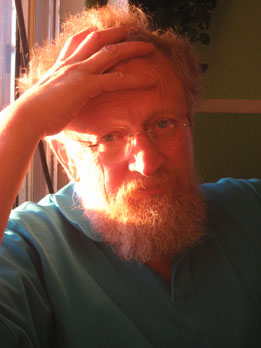|
William Osborne
And
in 2013, Dr. Jessica D. Butler completed her dissertation about our music theater work and
was awarded a Doctorate of Musical Arts degree by the University of Iowa. Her dissertation is entitled
“The Creative Identity of Women: An Analysis of Feminist Themes in Select Chamber Music Theater Works by Composer William Osborne for Trombonist Abbie Conant.”
In recent years
William and Abbie have toured to over
200 cities in America and Europe to great critical
acclaim with his compositions. Their European venues
have included the Munich Biennale, The Stuttgarter Tage für Neue Musik, The
Hamburg State Opera, The Bavarian State Opera, The Freiburg Theater Festival,
The State Theater of Kassel, Frankfurt’s Theater am Turm, Munich’s Gasteig
Cultrual Center, and Nuovo Forme Sonare in Rome. They have performed and given workshops at most of America’s
major music schools including The Juilliard School, The New England
Conservatory, Yale University, The Eastman School of Music, The Peabody
Conservatory, Indiana University, The San Francisco Conservatory, Cal Arts,
the University of California at Berkley, Ithaca College, and the University
of Northern Texas.
He also has
written numerous scholarly articles about women in music, music sociology and
philosophical/theoretical concepts. His article "Sounding
the Abyss of Otherness: Pauline Oliveros' Deep Listening and the Sonic
Meditations is published in Women Making Art (New York: Lang
2000.) His article “You Sound
Like A Ladies’ Orchestra: A Case History of Sexism Against Abbie Conant In
the Munich Philharmonic” has won
a “Best of the Web” award and led to a 90 minute documentary film about
Abbie’s experiences broadcast nationally on German State Television. The article was also the basis of the last
chapter of Malcolm Gladwell's book Blink which was on the New York
Times Bestseller List for 18 weeks -- and number one for three. His article “Art Is Just An
Excuse: Gender Bias In International Orchestras”was published in the Journal
of the International Alliance for Women In Music, where it initiated
international protests against the Vienna Philharmonic and worldwide press
coverage including reports on NPR, an interview of William on ABC’s Good Morning
America, and front page articles on both the New York Times and
the Los Angeles Times. His
article “Symphony Orchestras
and Artist-Prophets: Cultural Isomorphism and the Allocation of Power in
Music” was published in Leonardo Music Journal—a joint venture of
the International Society for Art, Science and Technology and the M.I.T.
Press.
In 1998 he was given a Special
Recognition Award by the International Alliance for Women in Music for his
services to women in music. In
January 2000 MSNBC published a major article about his work on their web new site,
"Taking On the Vienna
Philharmonic."
Additional materials:
Dissertation by Dr. Jessica D. Butler, University of
Iowa
Dissertation by Dr. Jesús Fernando Lloret González, University of Málaga,
Spain.
“Fusión del Teatro Y La Ópera a Través de Los Medios Audiovisuales: La Trombonista Abbie Conant Y El Compositor William Osborne.” (“The Fusion of Theater and Opera Through Audiovisual Media In the Work of William Osborne and Abbie Conant.”)
Miriam and Our Theories of Chamber Music Theater
|
 with
Franco Donatoni for two in Rome at the famous L'Academia di Santa Cecilia. He
has received two ASCAP awards, a Doctoral Fellowship to Columbia University,
alternate to the American Rome Prize, and a major prize from the Theater
Commission of the City of Munich for his Beckett productions. He founded The
Wasteland Company in 1984 along with his wife Abbie Conant as the main
performer to explore women's roles in music theater
with
Franco Donatoni for two in Rome at the famous L'Academia di Santa Cecilia. He
has received two ASCAP awards, a Doctoral Fellowship to Columbia University,
alternate to the American Rome Prize, and a major prize from the Theater
Commission of the City of Munich for his Beckett productions. He founded The
Wasteland Company in 1984 along with his wife Abbie Conant as the main
performer to explore women's roles in music theater